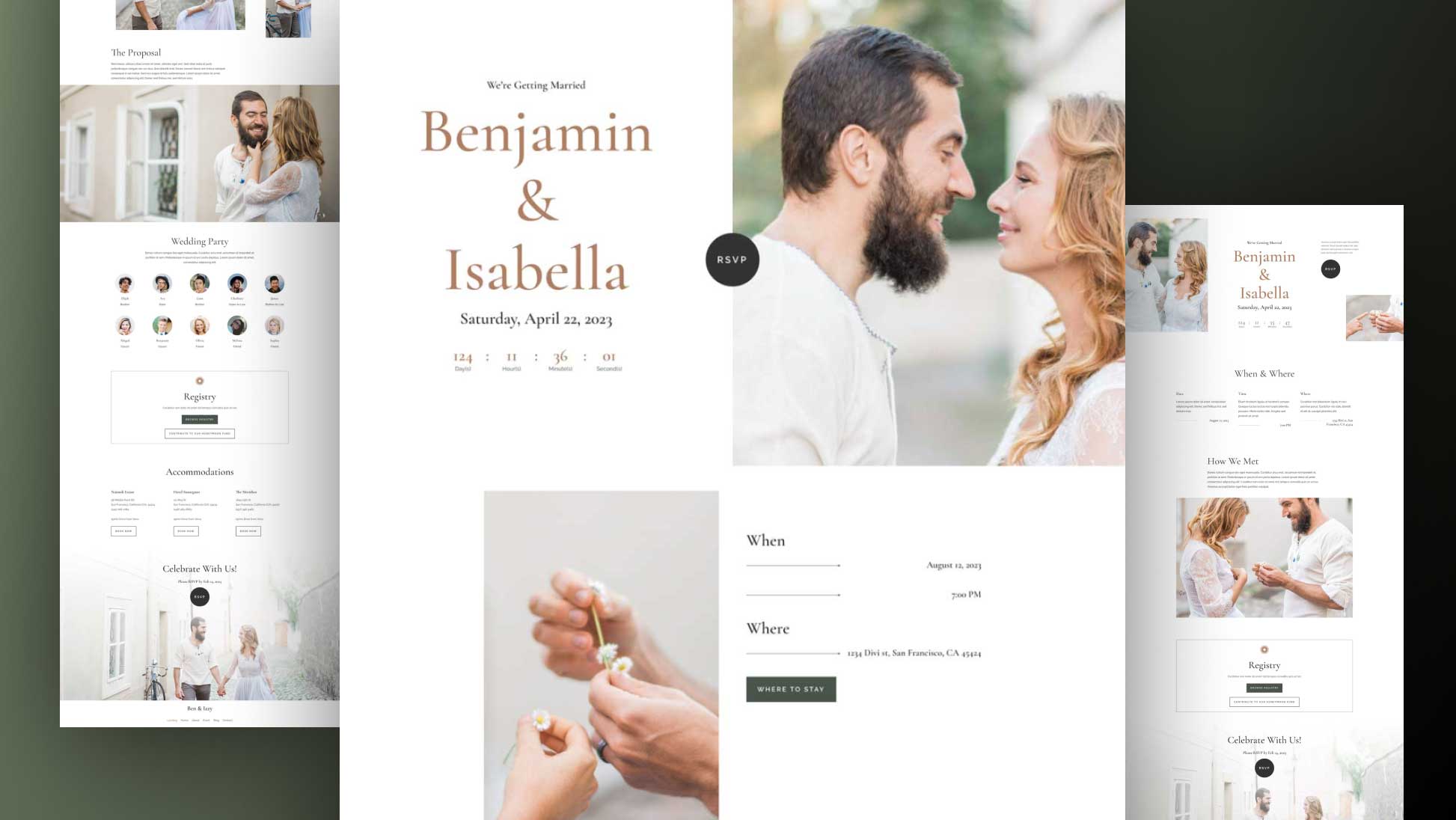With the advent of WordPress running over 22% of the Internet’s top 10 million websites (and growing), it’s no wonder the brand is becoming a job skill in itself. To be able to say “I know WordPress” is like saying you have an asset for your resume nowadays.
But what does that truly mean? “I know WordPress” has a wide variety of applications and interpretations, all in different contexts.
We can’t deny the platform is creating job opportunities, whether those be entrepreneurial (such as in freelance) or with more traditional employment. Either way, people’s careers are being affected, and oftentimes it can be by surprise.
I studied journalism and communication. I often wonder, ‘what am I doing in this industry? How did this happen?’ But looking back, it’s a great fit for what I was trained to do with my education.
And I think that’s the story with a lot of people. People are learning technical skills by way of WordPress, and that’s a good thing, though it comes with some caveats for the industry as a whole.

Image by Max Griboedov / shutterstock.com
For example, WordPress educator Morten Rand-Hendrikson, who works at Lynda.com, explains that the word “developer” is now being used differently in the ‘WordPress bubble’ than it is in the technological industry as a whole:
The larger web industry has an established language that brings with it expectations. When someone says “front end web developer” that means a specific set of skills. These definitions need to be learned through interaction with the industry and need to be used in the right context. When people are self-taught and have never touched the world outside of the WordPress community they tend to adopt the language of the industry without also adopting its meaning. There was a conversation on Twitter last year in which a prominent WordPress developer said something along the lines of “Front end developers are just glorified designers.” This is incorrect and a profound misunderstanding of an industry term. But it also reflects a common sentiment inside the WordPress community. What is happening is the community is inventing its own definitions and understandings of established terms. In the long run this may lead to a changing of the definition of those terms, but in the short run it is vitally important for someone from the WordPress community to be aware of how the larger web community understands these terms so they don’t use the same words but mean different things. In short if you want to position yourself in the larger industry market you have to learn the language and understand how that market sees you.
So the case with WordPress is that it’s becoming a “stepping stone” as Morten describes it. It’s easy to learn, and it’s opening the way for designers to learn how to make websites, to give one example. Content creators are also learning to use HTML, and even employees in marketing departments (or otherwise) are learning how to update company websites with content management system skills.
In fact, Morten mentioned that one group of people he sees coming to Lynda.com to advance their training in WordPress are designers who once worked in graphic departments at print publications. Being able to layout content and ads on a newspaper is not as widely needed nowadays. So people go for re-training, and that’s when WordPress becomes a shiny stamp on resumes.
But would those skills transfer to new work environments if WordPress were taken away? That is the crux: can we in this industry say we know “development” and not just “WordPress development?” or “content publishing” and not just “WordPress CMS publishing?”
According to Morten,
WordPress will be a tool in your overall tool kit. It should be something you master, but it should not be your main focus:
If you are a content creator your main focus should be content creation. You should also know how to do this using WordPress as one of your tools.
…If you are a designer or developer (or both) your main focus should be on design and/or development. WordPress should be a platform you can use to publish your designs and know how to develop for, but if WordPress suddenly disappeared you should still have a strong enough foundational skill set to keep going as if nothing happened.
…WordPress is not the main tool for any of these types of jobs. …You should always be able to let WordPress go and still be able to do the job. It is what you do with and around WordPress that actually matters. The tool is just a tool.
- 1 So what can you do with WordPress in your career path?
- 2 Web development and design freelancing
- 3 Get a job as a WordPress developer or content creator
- 4 Work on WordPress itself
- 5 Teach WordPress
- 6 Think outside the box: use WordPress to get a job in other industries
- 7 WordPress is changing our job market
So what can you do with WordPress in your career path?
Lot’s of things! Here are some ideas, and we strongly encourage you to leave your own in the comments below!
Web development and design freelancing
There are lots and lots of opportunities to be a freelancer developing and designing WordPress sites. The jobs in this area abound. Where can you find them? Here are a few places:
WordPress job board – posting specifically WordPress-related jobs with a myriad of specialties under that umbrella.
Craigslist – you’ll need to find your own city’s job classifieds area and search using “WordPress.” Not hard.
LinkedIn – type in “WordPress” as the keyword and your city of preference, and it will give you your options!
Also check out the article by Sarah Gooding on 12 Places to Find and Post WordPress Jobs.
Freelancing is so much more a viable career choice nowadays than it may have been pre-Internet or pre-us-knowing-how-to-use-the-Internet. One thing to keep in mind though is that if you chose this path, you will also be a business owner. That changes the dynamic of your work day and task list significantly. You’ll need a tax number, business registration papers, proper accounting systems set up, business development skills and a slew of other business savvy skills to be able to do this effectively.
But it can pay the bills, and you won’t starve, if you do it well and learn the ropes around running a business. Check out stats from Elance on their Global Online Employment Report.
Keep in mind that being a content creator also fits into being a freelancer, if you want that lifestyle (which shall not be mistaken for an easy one!). Tom Ewer has done this successfully and shares how he accomplished his achievements on leavingworkbehind.com.
Get a job as a WordPress developer or content creator
Yes, believe it or not, developers who specialize in WordPress are now in demand. One neat story can be read on Richard Tape’s blog, where he describes his recently-accepted position at the University of British Columbia, an offer he got specifically because of his WordPress development skills.
At this level you’ll need to also need to keep in mind what Morten advises:
You can get a job as a WordPress developer in big corporations (Time Magazine, Washington Post, UBC) and development houses that specialize in WordPress (10up) as well as other places. However for all these jobs WordPress is just part of the skill set required. At this level you are really a web developer that happens to also know WordPress. Or at least that’s what will be expected of you. It all depends on how far you want to go and what you want to do. If your plan is to build a career off of using WordPress as a point-and-click solution then you are probably going to do best as a freelancer. If you want to build a career as a web developer specializing in WordPress then you can make a career in a larger organization, agency, or company.
As for being a content creator, of course your skill in effective copy writing will come first. But it’s especially useful to know how to use WordPress thoroughly if you are going to be able to write content that can work within the flow of WordPress. For example, having an idea of where you’ll write widget content, versus page content, and so on.
Bloggers are in demand nowadays, and content is king when it comes to Internet marketing, which as we know is replacing print advertising in many ways. So yes, you can actually get jobs nowadays as a content creator exclusively, and not just in the realm of journalism or book writing.
Work on WordPress itself
Yes, WordPress has a company behind it. It’s called Automattic and they look for great talent. They also offer a lot of benefits. Word of the wise here: if you want to work for Autoamattic be ready to show your altruistic contribution to the WordPress community in a significant way.
Teach WordPress
You’d be surprised how many people are eager to learn how to use WordPress. Since many companies are now using it for their websites, and new startups are finding it to be their platform of choice when creating a website, the need to ‘learn the ropes’ is a huge opportunity as a career path in itself. In fact, one guy even bartered his WordPress teaching skills for guitar strings!
Think outside the box: use WordPress to get a job in other industries
Career tips are now telling you to not only set yourself up on LinkedIn, but also to create a website promoting yourself as a person. One way to do this is with WordPress. Yes, there are other ways, but trust me, the feeling of accomplishment you’ll get out of setting up your own site with WordPress is a great one, especially if you think you fit into the camp of the non-technical. You’d be surprised how easy it can be once you overcome the learning curve, and being able to show your skill in doing this will be an asset on your resume anyway!
Display your accomplishments, your photo, your portfolio of work and other material that interested employers may want to know about you before the interview. After all, it’s better than letting them scope you out on Facebook 🙂
So whether you want to be an accountant or a teacher, working with WordPress to kick-start your career can be a great tool for getting noticed by employers.
WordPress is changing our job market
Was that a big statement to make? Maybe, but I think it’s true, and my own story is a testament of that. When I talk to others in this industry, I find that my story is not unique.
Morten explained to me that he got into web development when he hired someone to make a website for him and wouldn’t do it exactly the way he wanted. Now he teaches WordPress professionally online and in college classrooms.
Tom Ewer (mentioned above) worked in property management and now runs the show at the ManageWP blog, which is all about WordPress.
Carrie Dils was working at Starbucks, tried to sell greeting cards and eventually found her way back into web development because of the wonder of WordPress. Watch this podcast to hear more of her story.
Businessmen and women are entering the field of WordPress premium plugins and themes – not because they studied computer science, but because WordPress itself had a market for them to sell a wanted product to.
Advertising agencies are selling WordPress sites, and need employees and freelance subcontractors to make them.
What’s your story?
WordPress is changing things, and it’s for the better. But will it last? Let us know your thoughts!
Article thumbnail image by ratch / shutterstock.com









Is wordpress a good platform to choose it as a career or is it good to learn learn any coding language thats adds a additional strength to get better job oppurtunities?
Craigslist works bette than linkedin as far as jobs go , job classified ads on craigslist for software developers work so great . There’s a new european version that is like craigslist , it’s http://www.europegiant.com . You can find jobs on there too
Hi, Joyce – Great post on WP’s prominent place in the online world and the career possibilities. It seems to me that WP is now a much more capable general Website (building AND development) platform than even 5 years ago. At some point it was still considered mainly a blogging platform. But now I get the impression that you can build (just about) ANY type of Website (i.e. including eCommerce, video-centric, etc) with WP – with many needed capabilities provided by plugins and, if no plugin is available, you can write your own (or hire a developer). My point is that at this point in time: WP core + WP themes + WP plugins = ANY Website (not even just limited to CMSs). To me, that’s what makes WP so powerful and accounts for its increasing usage. I’m guessing that most developers will just start with a WP install and code up a plugin rather than code up a Website from scratch.
I worked in WordPress dev and design in the freelance capacity for seven years before working for a multi-media marketing company creating websites for clients, who are mainly in small business. WordPress is the only platform we use and I don’t see that changing anytime soon. Can you make a living working with WordPress? You bet!
I agree. I think it would be too hard for many people to switch at such a large scale to another platform with the rate that WordPress is dominating the Internet. If the change happens, it will likely be slow and gradual and I hope, for those of us dependent on WordPress for our careers, that we will have enough leeway and notice beforehand to start adapting to any future changes 🙂
I’ve been working full-time using WordPress since 2010, building a lot of unique business solutions that are far beyond simple blogs.
In my experience, it’s hard to find companies that fully understand the capabilities of WordPress and when I mention I develop with WordPress I usually have to explain why that’s a good thing, as they tend to think being a WP expert makes me an amateur developer.
It seems like some companies are starting to realize the potential of WP, but I still feel like there’s an overwhelming negative view of WP in the business world.
some people can be negative about it but I find for the most part many people and agencies are switching to it. You just gotta look for the right ones 🙂
I’ve been working full-time using WordPress since 2010, building a lot of unique business solutions that are far beyond simple blogs.
In my experience, it’s hard to find companies that fully understand the capabilities of WordPress and when I mention I develop with WordPress I usually have to explain why that’s a good thing, as they tend to think being a WP expert makes me an amateur developer.
It seems like some companies are starting to realize the potential of WP, but I still feel like there’s an overwhelming negative view of WP in the business world.
This is a great, well-researched article Joyce! Thanks for enlightening us! 🙂
Thank you for the information. Now i like to learn Codings !
Can you suggest me which language i should learn for creating WordPress Themes and Plugins. Single Page site also.
Specialized in Adobe Photoshop, Illustrator and Premier Pro
Can you suggest me which language i should learn for creating WordPress Themes and Plugins. Single Page site also.
After 25 years in the IT industry working for someone else I decided to start my own business but need to update my skills.
WordPress itself is written in PHP so that’s something you must have to develop your own themes and plugins. In addition you’ll need a solid understanding of HTML, CSS, java, and mysql. I learnt all of these skills online at teamtreehouse.com. The best investment I ever made.
I still consider myself a startup but the first for months have been awesome!
I hope this helps and good luck.
John Cope
Teamtreehouse was great. I wrote an article on places to learn WordPress online a while back: http://www.elegantthemes.com/blog/resources/11-online-places-to-learn-wordpress-inside-and-out-paid-and-free-options – do check it out for some options if you’re interested!
Great article Joyce. So many points I agree with. Especially in the area of Freelancers getting somewhat familiar with every necessary aspect of business such as accounting, sales, customer support, etc… I have seen some really good designers get stuck working in stifling positions for larger companies because they couldn’t get started on their own. In fact I was that way myself for many years. Thanks again for writing this up. I will definitely share this with others!
Thanks Geno! One thing that has been hard going out on my own is learning that you can either work in your business or on your business. The ones that ‘get it’ will learn to work on their business unless they really truly want a job for themselves, which is fine. But if you want to scale, you need to be willing to be an entrepreneur and start learning how to systematize and even outsource with your business, which means you have to separate yourself from the creation process quite a bit. That being said though, I can think of at least one person who has stuck to the creation side of things and is doing quite well and is happy with it too. I think it’s about what you want more than what’s ‘right’ to do. For me I try to find a balance between the two – running and growing a business and also being the creator at times.
Yes Joyce, WordPress is creating jobs and I’ m a witness of that. Also, WordPress is subconsciously building passionate web developers who did not learn computer/web programming in school. Once you hook on WordPress and its Plugins, your inner man will begin to spurn you to learn some of the web programming languages. In addition, most companies are getting aware of WordPress edge since they can creating a sweet tight hub for their employees online to interact professionally and promote their sundry offerings when compared to static web they have :).
Thanks for your review Joyce
I know WordPress is growing but not aware as deep as you have written in this article. Thanks
Very interesting post. Yup, WordPress is creating new job opportunity every day. Learn lots of new thins from the post. Thanks for the share.
Your graph is a little misleading. The difference shown is only about half a percent. Any change can be made to look drastic when you zoom into such a small scale.
Not really my graph, if you’ve noticed 🙂 These are based on stats from indeed.com, and was embedded into this post from there.
Yeah, but in all reality, with the scope of jobs on indeed to begin with, that’s the fact of the job market share. When IT jobs only account for 9.26% of all jobs on indeed right now, that half a percent is a pretty big deal. The point was made to show the increase.
ref: http://ca.indeed.com/jobtrends/industry
Thanks Dinnae
I too fell into WordPress after dealing with communication issues and delays with web development firms when I was a Spa Director. I heard many of the same stories from colleagues friends. This frustration was my drive to learn WordPress and my current career as a freelancer. This frustration also lead to learning film editing for clients who wanted YouTube channels.
In my opinion my #1 skill is still customer service and follow-through from my days in hospitality. I get so much positive feedback from my clients about how responsive and friendly I am.
That’s my two cents 🙂
Yes, I notice this also. Having not come from a computer scienc-ey background and more of a marketing and communication background, I think it serves me well in this industry, since it can be hard to find.
I personally think it’s wrong to think of WordPress as something that’s it’s own thing. To me, WordPress is the spirit of Open Source and the technologies behind it. It’s a framework that allows HTML, CSS, PHP, and Javascript (and everything attached to those) to come together in one neat package.
Basically, I’m saying that WordPress [to me] isn’t a thing in and of itself.
2 cents.
“Front end developers are just glorified designers.”
What about. “Illiterate Web Designer.”?
This is a pretty good breakdown of what is understood when you use the term “front-end developer” in the larger industry context. Design is a part, but a small part. The designation is mainly focused on front-end code languages and UX: https://drupal.org/node/1245650
WordPress has enabled me to break free from corporate America and into a fairly lucrative freelancing career. I am very grateful for this because the schedule is flexible and I actually enjoy the job I am doing for once. It’s not for everyone though… You make a good point about needing business skills to succeed and that is very true. I was fortunate to have learned those skills prior to getting into freelancing. Without the essential skills of time management and bookkeeping as well as a plan for client acquisition and retention one would certainly find it difficult to make a comfortable living this way.
I do think WordPress has changed the job market in a good way, as it allows people with good ideas (who lack programming knowledge) to put their dreams and ideas online. So in that respect I think it has been a big equalizer.
Will it last? Who knows… Things can come and go so fast, especially online. One thing about WordPress that makes it so special is how many people have contributed to it in one way or another. I think that has created an unparalleled emotional connection between WordPress and the people who use it. As long as this connection remains strong then I think the platform will have great longevity.
You know I was talking with someone about this recently, and my feeling is that once you have something like 20% of the Internet running on a platform like WordPress, it will likely be around for a long time. Think of the organizations that can’t get themselves off of IE6 because some proprietary software they use internally is dependent on it or something like that. Once you get these large organizations on a platform, it becomes very hard to change. As Eric Reis said in the Lean Startup (thought don’t quote me), it’s hard for large organizations to stay agile and flexible. So I think as long as it’s ‘stuck’ with these companies, the need for improving it will be around for a long time, and thus the need for it to exist for a while will also be there 🙂 At least I hope so, cuz it’s pretty sweet 🙂
My roommate got his job because he knew how to run WordPress.
In addition to my first blog, I’m starting to create content for other sites. It’s all really exciting!
I <3 WordPress!
Will, I like your website and think your niche could be very helpful to young people. Too many people under 25 lack a plan for the future. Best of Luck!
wow that’s awesome I’d love to hear that story!
I read many times that at present 70% websites of World create based on WordPress. But didn’t know such deep information. Thanks for share Joyce Grace. Very good article for Beginner
Hi Dipak, I think it’s closer to 20% at present 🙂 But growing!
Hi Dipak, I think what you’re referring to is CMS market share (60% according to this: http://w3techs.com/technologies/overview/content_management/all).
I think the latest usage stats is 22%, and yes, still growing. 🙂
Sorry for repeating what was already said — too much coffee, and fingers faster than my eyes! 🙂